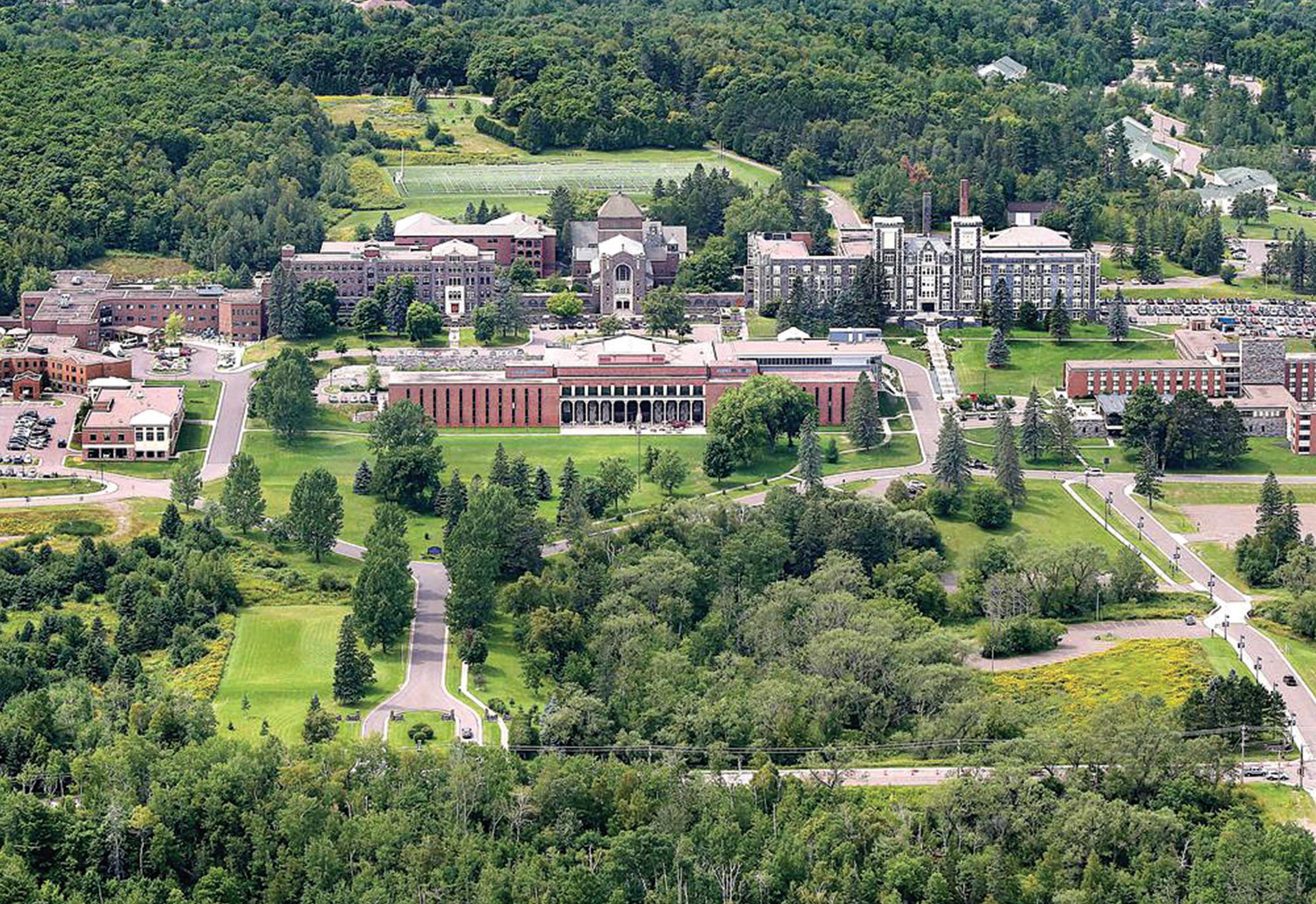
1 minute read
Kenwood
By Kelly Busche kbusche@duluthnews.com

While residential homes make up most of the Kenwood neighborhood, the College of St. Scholastica serves as the neighborhood’s key feature.

But the Catholic-affiliated school wasn’t always located in the neighborhood.
In 1892, dozens of nuns from St. Benedict’s Convent in St. Joseph, Minn., opened a Benedictine convent and academy in Munger Terrace, according to CSS’ website.
Enrollment quickly grew, causing it to move several years later to a building near downtown Duluth. More growth came to the area in the early 1900s, leading the school to move once again — this time, to its current location.
The land in Kenwood that the school now sits on was previously known as the “Daisy Farm,” according to reporting from CSS’ student newspaper, The Script.

While Mother Scholastica gazed on the land that was just purchased for the school, she said: “My dream is that someday there will rise upon these grounds fine buildings, like the great Benedictine Abbeys. They will be built of stone; within their walls higher education will flourish.”
Mother Scholastica’s dream was realized: The campus’ landmark Tower Hall, which was built in the early 1900s, is made of bluestone.
The nuns’ contributions also extend to Duluth’s health care industry.
In response to a typhoid outbreak in 1898, the nuns started St. Mary’s Hospital, according to News Tribune reporting.
After a few mergers, this hospital eventually became the flagship hospital for Essentia Health. The school still has a strong connection to health care, as it offers degrees in nursing, occupational therapy and athletic training, among numerous others.

Just over 4,000 undergraduate and graduate students attended the private school during fall 2018, according to the school’s website.
Higher-density housing arrived in the neighborhood, with the opening of the $21 million
Kenwood Village in 2017. Mixed-use space at West Arrowhead Road and Kenwood Avenue also opened near the apartment building.
But other efforts to introduce higher-density housing came with staunch resident opposition.
Last year, neighbors opposed changes that would allow for higher-density housing, like apartments. Duluth City Council rejected the proposal to rezone in late 2018.











